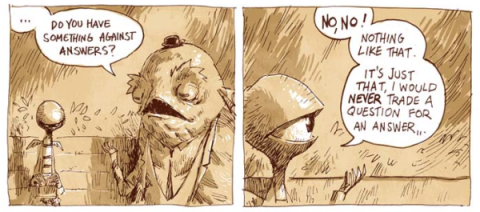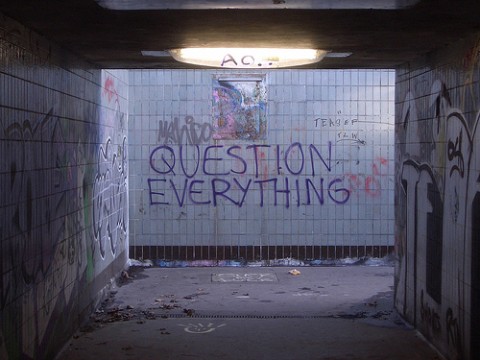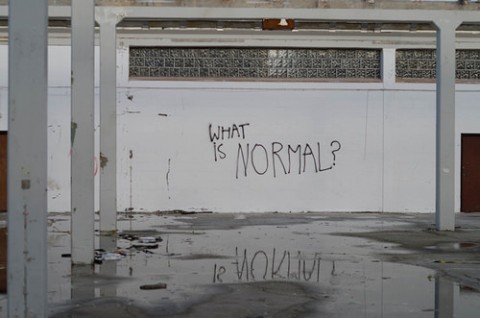Beautiful Questioning for Social Change
June 25, 2015 1 Comment“A beautiful question is an ambitious yet actionable question that can begin to shift the way we perceive or think about something – and that might serve as a catalyst to bring about change.”
– Warren Berger
One of my favorite reads of the past couple of years is Warren Berger’s A More Beautiful Question: The Power of Inquiry to Spark Breakthrough Ideas. It continues to strike me as being an important book for any social change agent. Early on, Berger begins with the following provocative statement, that rings true to personal experience:
“Well meaning people are often trying to solve a problem by answering the wrong question.”
In some cases this is because they have not paused long enough, if at all, to consider the underlying question their efforts are trying to solve (risking “active laziness” which I blogged about a couple of weeks ago). Or, as my colleague Cynthia Silva Parker has said, they are “solving for solution,” essentially promoting and/or fighting over their own preferred approaches. And so they continue to offer the same old, ineffective and outdated, approaches or products. This is especially problematic in a time of such change and flux, when we can’t fall back reliably on what we already know.
In many organizations, asking questions can be viewed as threatening. As Berger writes,
“To encourage or even allow questioning is to cede power.”
Furthermore, there continues to be much adulation of “expertise,” such that questioning can in some cases be viewed as weakness, or as Sir Ken Robinson’s puts it, “In our culture, not to know is to be at fault, socially.” (This can certainly vary culturally, as I have learned in talking recently with a few colleagues in Europe.)
But in the face of growing complexity we often don’t know what’s going on or how to proceed. And, as Joi Ito of MIT ‘s Media Lab says,
“You don’t learn unless you question.”
Berger posits that part of the current explosion of entrepreneurialism owes to that fact that entrepreneurs have more freedom to ask otherwise un-askable questions, which is a growing requirement of our times – For whom are our current systems actually designed? Will technology really save us from ourselves? What are alternatives to an economy built on the continuous pursuit of growth? As access to information has grown exponentially, we are seemingly surrounded and overwhelmed by potential answers. What becomes critical then is the ability to frame questions to get the best responses. Enter “beautiful questions.”
For Berger, a beautiful question is a line of inquiry that is both ambitious and actionable. It pushes the boundaries of our current capacity and imagination without impeding forward movement.
Questioning + action = innovation
Questioning – action = philosophy
And importantly, questioning is not simply about innovation. It is also about justice. As activist Fran Peavey has noted, often the unaskable question is the one that challenges the current social arrangements that yield inequities of various kinds. Therefore, not to question preserves the status quo. Furthermore, those who do not know how or are pressured not to ask “the right” questions are often denied that which they might need or are entitled to have. Which is part of the rationale for IISC’s current emphasis on question campaigns.
“Are we too enthralled with answers? Are we afraid of questions, especially those that linger too long.”
-Stuart Firestein
I would also add that “beautiful questioning” has an evolutionary edge to it, as inquiry can at the right time and place disrupt assumptions and systemic stuck-ness, allowing for emergence, adaptation and development.
I recommend Berger’s book to readers of this blog, which is filled with provocative quotes and questions, and ideas for how to push the edges and depths of our change efforts with critical inquiry. Also, his website has some great quotes and a list of beautiful questions that readers have submitted.
Other resources include Fran Peavey’s paper on strategic questioning, The Right Question Institute, and Kostas Kiriakakis’ provocative comic strip (see excerpt below).
And please share with us here some of your beautiful questions.




1 Comment
Great blog post, Curtis! Here’s one of my favorite questions:
What is an important conversation we are not having?
And I love this quote of Fran Peavey’s: “It’s a far superior strategy to get all minds working on what needs to change, than trying to convince people to do what we think is best.”